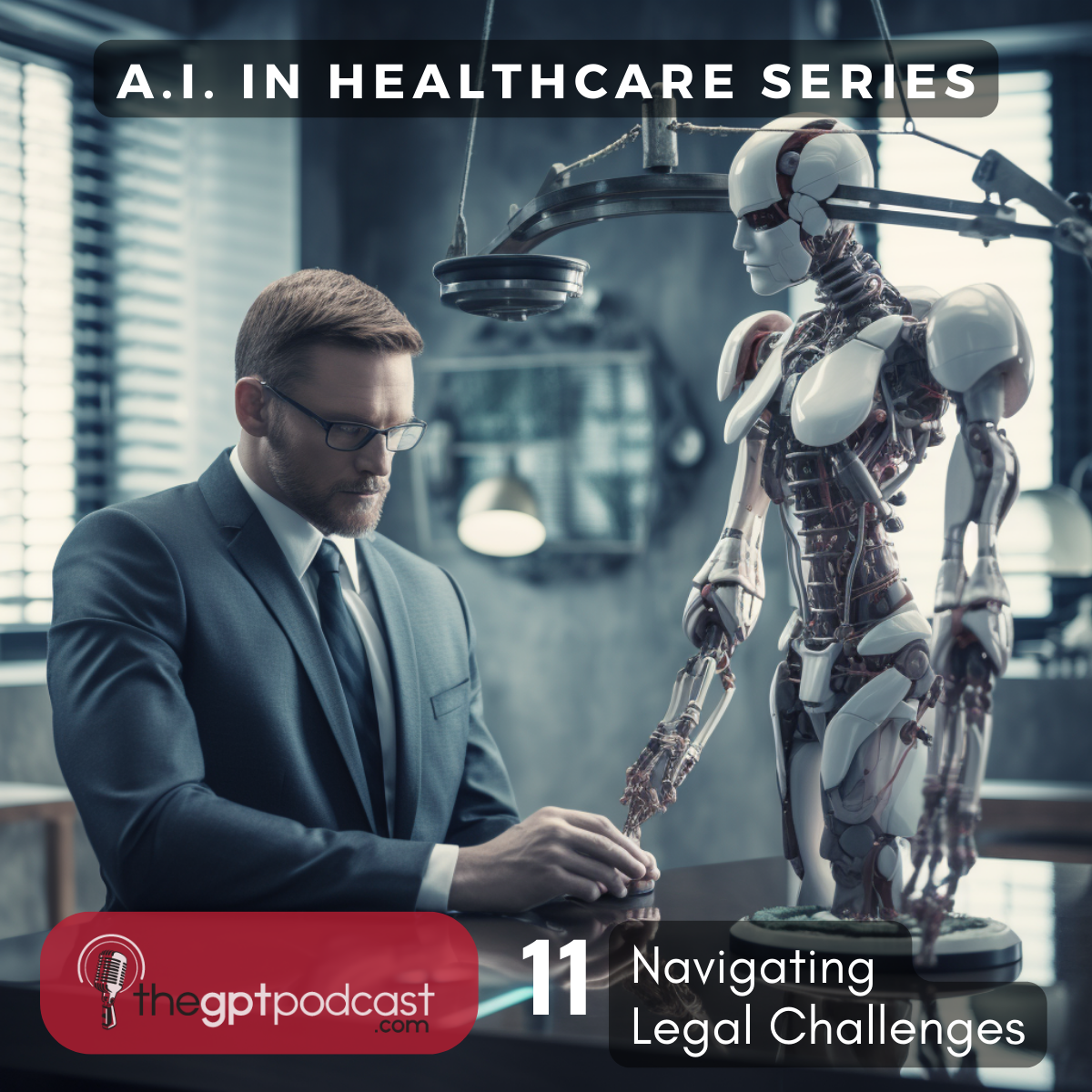AI in Healthcare: Navigating Legal Challenges
In the GPTPodcast AI in Healthcare series, we 🎤 explore AI's role in healthcare 🌐 legalities and liabilities. AI's ability to improve diagnoses and treatment🩺 but note concerns about liability for errors causing harm.

In this episode of The GPT Podcast's AI in Healthcare Series, this engaging conversation navigates the controversial topic of the convergence of AI in Healthcare and the thorny issue of liability when things go wrong.
Artificial Intelligence (AI) is revolutionizing countless areas of our lives, and healthcare is no exception. AI applications in this sector are breaking boundaries by providing accurate diagnoses, personalized treatments, and facilitating better accessibility to quality care, particularly for rural patients.
However, as AI becomes increasingly integrated into the healthcare field, it's posing new challenges in determining who bears responsibility when AI applications fail or cause harm. Such failures could range from direct physical harm to privacy violations, and other more subtle issues such as propagating biases through automated systems.
As Harvey explains, a crucial component of the AI liability conundrum stems from the statistical nature of modern AI systems. These systems can guarantee efficiency for the most part. Still, they are not infallible, and there will be occasional instances where these systems won't perform as intended.
Liability in these situations becomes even more complicated due to the autonomous nature of AI systems and the variety of stakeholders involved, including the data providers, designers, manufacturers, developers, users, and the AI system itself. Determining liability in the event of any damage becomes a tricky task. The situation begs the question: Did harm happen because instructions were not adhered to, or because the AI system was still learning, collecting, and processing data?
To illustrate these challenges, Harvey uses the example of the 2017 class-action lawsuit against Tesla. Here, the manufacturer was blamed for the alleged inoperative nature and faults of the automated vehicle's autopilot system. The financial implications were staggering, with potential penalties exceeding $115 million and reputational damage costing even more.
The stakes are arguably higher when it comes to the integration of AI in the healthcare system. Unlike other sectors like automotive, insurance coverage for AI-related scenarios in healthcare is scarce, and litigation threats around AI make providers and insurers wary. Recent FDA guidance seems to suggest that manufacturers should bear the liability for cyber and software issues, including those related to AI, rather than placing this burden on hospitals and healthcare providers.
However, the current lack of an insurance structure to cover AI-related liabilities has caused manufacturers to resist assuming this potential burden. This reluctance could stymie the promising innovation and usage of AI, slowing down its potential to bring significant transformative change to healthcare.
Finding a balance in optimizing the benefits of AI in healthcare while minimizing the risks is a crucial challenge in the sector. A risk-based approach is fundamental, looking at whether the benefits of AI-powered systems outweigh their potential risks.
As Brooks points out, it's crucial that a balance is struck between caution and optimism. Transparency between manufacturers and healthcare professionals can help assign liability, build trust, and possibly foster broader acceptance and utilization of AI in healthcare.
We stand on the cusp of a transformative period in healthcare brought about by AI. While the promise of improved patient care is exciting, it brings along uncertainty and risks that need to be navigated judiciously. This conversation was a crucial part of beginning a dialogue around these challenges, one that we need to continue tackling as we further explore the future of healthcare.
Stay tuned to our blog for more discussions on this and other fascinating aspects of AI's growing role in various sectors.

